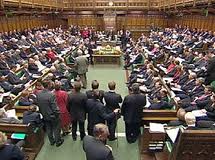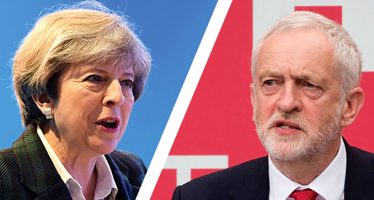CBI on Europe: Half-Way Houses Won’t Work for the UK

House of Commons
The CBI is calling for the debate on Europe to focus on credible options for the UK’s future relationship with the EU, warning that half-way house models such as Norway and Switzerland are not the answer.
Ahead of a key debate in the House of Commons on the timing of a potential EU referendum, the CBI is today (Friday July 5th) publishing new analysis of Norway’s and Switzerland’s relationships with the EU and rejects the notion that a similar form of associate membership would work for the UK.
While the CBI argues that the arrangements work for Norway and Switzerland, they would not work for the UK. They would leave British businesses on the margins of the world’s largest trading bloc, operating under market rules over which it has little or no influence.
Katja Hall, CBI Chief Policy Director, said: “Businesses will get behind what’s best for growth, jobs and the long-term health of our economy – retaining access to the single market in a reformed EU. The test for those arguing that the UK must remain in the EU and for those pressing for our departure is to come up with a clear vision of our future, inside or out.
“Whether we are in or out of membership we will still need a relationship with the EU. But Norway and Switzerland simply don’t appear to have set-ups the UK should aspire to. They are half-way houses on the margins of Europe with no influence over the market rules under which they operate.
“Norway still pays the bills and has as much of a say on the single market as Liechtenstein, which is not my idea of greater sovereignty.
“The debate now needs to focus on the best way to use our seat at the table and get the wheels turning on the kinds of reform that will make all of Europe more competitive.”
The CBI’s research draws on a series of interviews and meetings held with leading Norwegian and Swiss politicians, business federations, companies and diplomats.
The Norway model
Norway is part of the single market, without being an EU member, via the European Economic Area (EEA) Agreement.
The Agreement provides access to the single market through the inclusion in national law of EU legislation covering goods, services and capital, as well as the free movement of people. In theory, Norway has equal access rights to any EU Member State. Several areas are not covered by the agreement including trade negotiations, agriculture and fisheries policies, justice and home affairs.
EEA members still pay contributions to the EU, with Norway paying 100 EUR per capita, well over half of the UK’s contributions as a full member (180 EUR).
Norwegian Conservative MP, Nikolai Astrup: “If you want to run Europe, you must be in Europe. If you want to be run by Europe, feel free to join Norway in the European Economic Area.”
Key findings:
The EEA agreement has given Norway’s businesses vital access to the single market whilst opting out in some areas such as fisheries and agriculture
Practical barriers and realities reduce the economic benefit of market access. For example, the EEA is supposed to implement EU rules ‘simultaneously’ but this is rarely the case which puts Norwegian firms at a competitive disadvantage and creates uncertainty
The lack of any formal influence on decision-making means Norway suffers a democratic deficit with no say on EU market rules, despite paying significant financial contributions.
The Swiss model
Switzerland has negotiated some access to EU markets through a Free Trade Agreement. More than 120 bilateral agreements have been agreed with the EU on areas such as free trade and free movement of people, but it has not successfully negotiated an agreement on services.
It also has a ‘safeguard clause’ where under the agreement on the free movement of people, an exemption has been negotiated to cap immigration over a limited period of time. Switzerland is not part of the Common Agricultural Policy and has not pressed for an agreement on financial services.
Key findings:
The Swiss solution has provided benefits through ‘access with flexibility’ for the economy and businesses – goods worth more than one billion Swiss francs cross into the EU each day
The model does not really provide for flexibility – Switzerland often opts to ‘autonomously introduce’ similar regulations to the EU, to make sure its industries do not have barriers to EU markets
Negotiating trade deals has taken many years and proved complex and time-consuming, leading to extra costs and uncertainty for Swiss businesses
Switzerland also has no formal channels to set the agenda and influence EU legislation.
You may have an interest in also reading…
World Bank Group: Development Finance Frontline – Strategic Investment Funds
This is the first of a series of occasional interviews with senior strategic investment fund (SIF) professionals. Tasked with attracting
UK: Casino Politics
In a triumph of cautious optimism over alarmist gloom, UK voters delivered Prime Minister Theresa May a comeuppance of sorts,
IFC: Moving to Green Growth in Emerging Europe, Central Asia and the Greater Middle East
As global temperatures rise, weather patterns shift and natural disasters dominate headlines seemingly every other week, climate change has become
















































































